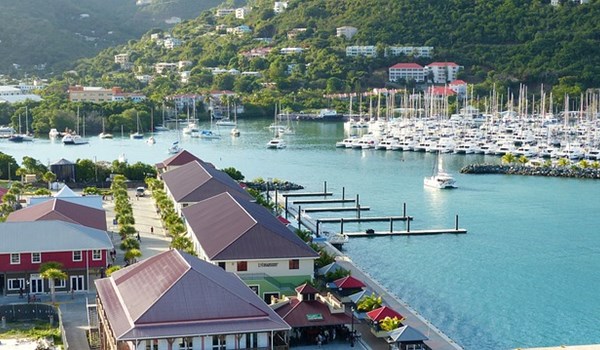The first edition of Johannesburg Arbitration Week highlighted the growing attraction of arbitration as a means to resolve ESG disputes throughout the African continent, write Jonathan Ripley-Evans and Kyle Melville.
The inaugural (JAW) took place from 9–11 April 2024 at the Sandton Convention Centre. JAW, co-hosted by the Arbitration Foundation of Southern Africa (AFSA), South Africa Bars and a number of leading local and international law firms, saw delegates from across Africa and all over the world debate key issues faced in international arbitration.
The of JAW saw Herbert Smith Freehills (HSF) host its plenary session titled ‘ESG: fertile ground for disputes?’, which took a close look at the steady increase in Environmental, Social and Governance (ESG)-related disputes as well as the suitability of arbitration as an appropriate mechanism to resolve such disputes. Moderated by HSF Johannesburg director Fiorella Noriega Del Valle, the panel comprised Michael Schottler, head of global disputes at the global mining conglomerate Anglo American, HSF London partner Andrew Cannon and Dr Patricia Nacimiento, a partner with HSF Frankfurt.
ARBITRATION: THE MOST SUITABLE APPROACH, DESPITE IMPERFECTIONS
The panel discussion began by examining the suitability of arbitration as a means to resolve ESG disputes, bearing in mind that arbitration, as an alternative to litigation, offers parties various advantages not available in court-centred disputes.
The ability to appoint an arbitrator with the requisite skills to deal efficiently and effectively with the characteristics of the particular dispute remains a key consideration, particularly in technical ESG disputes. Schottler highlighted the procedural flexibility as well as the neutrality of arbitration proceedings as key attractions. In addition, although it may be less relevant in the context of investor-state dispute settlement (ISDS), the confidentiality associated with international commercial arbitration continues to influence the decision to choose arbitration over litigation. And the ease of enforcement of arbitral awards under the New York Convention is another major advantage.
Despite all its benefits, the panel was quick to acknowledge that arbitration is by no means perfect. Tensions can arise between courts and arbitral tribunals in certain jurisdictions, and restrictions on procedural freedoms can undermine some of the core principles of arbitration. Specifically in the ESG context, it was suggested that arbitral institutions may want to carefully consider whether their rules currently provide sufficient protection to parties involved in ESG disputes.
ESG IN THE AFRICAN CONTEXT
ESG disputes are fast becoming one of the hottest topics in boardrooms across the globe, with some African nations having already taken positive steps to transition to sustainable energy production. For example, in 2021, Kenya, following a restructuring of its 100% government-owned power utility in 2008, generated 81% of its electricity from low carbon sources including geothermal, hydro, wind and solar power. However, other African states such as South Africa have delayed the decommissioning of its coal-fired power stations in an effort to meet its current energy demands.
The transition to more sustainable sources of energy presents new challenges to participants, often resulting in disputes that often require a degree of lateral thinking to deliver sustainable solutions. Africa’s rich natural resources as well as the need for extensive investment have both contributed to an increase in ESG-related disputes across the African continent. Sectors such as construction, infrastructure, mining, and oil and gas continue to give rise to major disputes. However, the panel noted the trend in environment-related cases falling before various human rights tribunals, with the most recent example being the case of where, in a precedent-setting judgment, the European Court of Human Rights ruled that Switzerland had violated the European Convention on Human Rights by failing to take sufficient action to mitigate the effects of climate change. It remains to be seen whether this approach will be followed in other jurisdictions, including in Africa.
ISDS ON THE RISE IN AFRICA
Because of the consistent need for investment across the African continent, Nacimiento suggested that, despite the criticisms currently being levied, ISDS remains particularly important in the African context. This assertion is supported by recent statistics published by the International Centre of the Settlement of Investment Disputes (ICSID) which found that, since 2022, there has been a 7% increase in cases stemming from investments in Sub-Saharan Africa. Focusing on the environmental element in ESG, the panel discussed the apparent increase in water-related disputes, often relating to a lack of access to water and aging infrastructure across the continent.
Taking this point further, the panel noted that, in the drafting of newer-generation bilateral and multilateral investment treaties, states are beginning to specifically carve out a right to regulate in the public interest, specifically in the context of climate change and a state’s environmental obligations. Article 8 of the African Continental Free Trade Agreement, for example, expressly provides for a state’s right to regulate and adopt policies that meet national objectives.
ESG CONTRIBUTING TO THE RISE OF ARBITRATION IN AFRICA
Despite its challenges, arbitration continues to be regarded, by both legal practitioners and clients as the most appropriate forum to resolve complex commercial disputes. ESG disputes are no different to disputes in many other sectors and tend to pose novel legal questions, which have the potential to touch upon more than mere commercial factors, such as political and human rights considerations.
The rise in ESG-related disputes comes at a time when arbitration is on the rise across the African continent. African states, including Nigeria, South Africa and Sierra Leone, have recently adopted pro-arbitration legislative measures and, continuing this momentum, JAW saw 10 of the 16 member states of the Southern African Development Community (SADC) sign the AFSA-SADC Alliance Charter, which aims to harmonise arbitral practice across the SADC region, creating a rich source of African arbitration jurisprudence for future generations.



